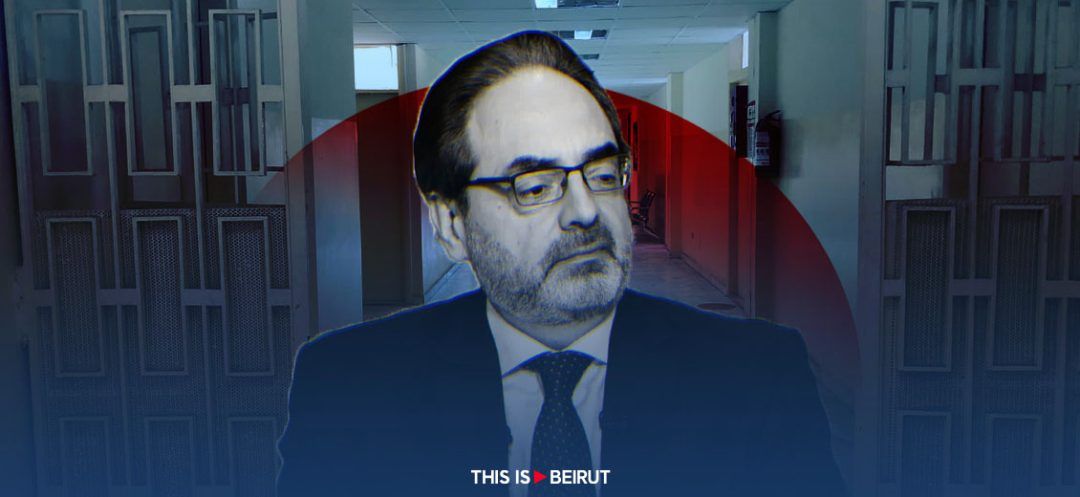
The strikes by civil servants have persisted for over two years, detrimentally impacting the Lebanese economy and undermining state revenues. While civil servants advocating for salary increases rightfully seek to enhance their purchasing power, their actions have also resulted in the closure of public administrations. These closures hinder the state's ability to collect revenue, exacerbating the financial challenges faced by all parties involved!
The Lebanese public administration has been on strike since January 30 and plans to continue until February 9, given that February 10 and 11 fall on a weekend. Civil servants are vehemently criticizing a government that "fails to honor its promises or commitments," particularly as the budget for the 2024 fiscal year, approved by Parliament, does not allocate salary increases for civil servants but rather "bonuses" drawn from Treasury reserves.
Despite the government's initial pledge to increase basic salaries sevenfold, the 2024 fiscal year budget reveals that it has secured funding to triple basic salaries but lacks the resources for a further fourfold increase.
According to Nassib Ghobril, Chief Economist at Byblos Bank, these ongoing strikes are detrimental to the economy. "While it is acknowledged that the government faces financial constraints in meeting all civil servants' demands, the persistent disruption of public sector operations not only negatively impacts the private sector but also fosters uncertainty, disrupts business activities and erodes confidence in the country," he emphasizes.
Decreasing Public Revenues
State revenues are plummeting. In 2018, they accounted for 21% of GDP, amounting to $11 billion. However, by 2023, they are estimated to have dwindled to 8.6% of GDP, or $1.85 billion. Similarly, tax revenues, which stood at 15.4% of the GDP or $8.2 billion in 2018, have plummeted to 6.5% of the GDP, around $1.4 billion in 2023.
Commenting on these figures, Ghobril points out that "the decline in state revenues and tax revenues, especially from 2018 to 2023, can largely be attributed to the economic crisis and the predominance of the cash economy. However, the ongoing two-year strike by civil servants has undoubtedly exacerbated this downturn." Tax revenues have drastically dropped from $9.2 billion in 2018 to $1.4 billion in 2023. According to the economist, approximately 30% of this disparity, amounting to $7.8 billion, can be attributed to the prolonged civil servants strike.
Eliminating Phantom Positions
Ghobril also highlights the potential for significant savings within the state by addressing the issue of phantom jobs prevalent in the public administration. "It's not just about excess staff, but the existence of phantom positions," he emphasizes. "Public sector representatives have been vocal about the urgent need to eliminate these roles." Expanding on this, he adds, "Since 2017, both the parliamentary committee on Economy and Trade and the Ministry of Finance have been unequivocal in their stance that at least 90 public institutions, independent authorities and funds should be either closed or merged with other departments. Implementing these measures would mark a crucial step in saving costs, which could then be redirected towards salary increases for genuinely productive employees. While this may only be a modest beginning, it would send a highly positive signal to the private sector regarding the government's commitment to restructuring the public sector."
Exploring Alternative Funding Streams
The government's budget proposal relied heavily on introducing new levies and taxes across various sectors to finance the hike in civil servant salaries. However, Ghobril strongly argues, "It's imperative for the state to explore alternative funding sources that have been overlooked by previous administrations."
Opportunities such as cracking down on tax and customs evasion, smuggling or encroachments on public maritime domains have been neglected. Nonetheless, according to Ghobril, the easiest and most logical solution would be to keep public administrations continuously open five days a week, allowing taxpayers to carry out their formalities and generate revenue for the state, thereby swiftly increasing salaries.
The government cannot continue to lament a lack of funds while civil servants demand salary hikes without ensuring the efficient operation of public administration departments. "It's a cycle that must be broken, and there are numerous ways to accomplish this," Ghobril concludes.
Read more



Comments